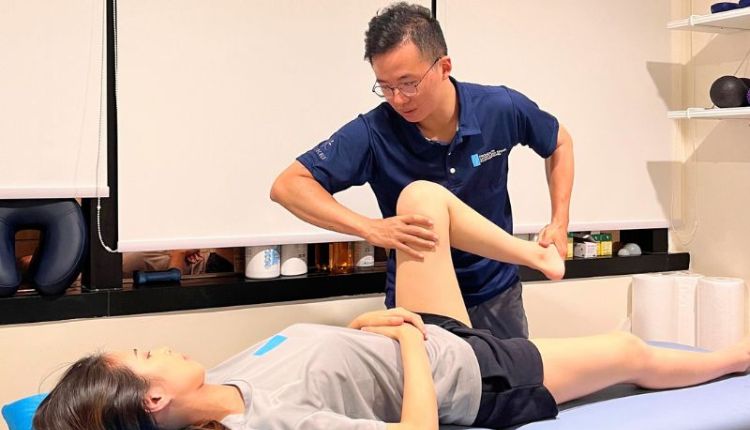Physiotherapy, also known as physical therapy, is a vital healthcare profession focused on diagnosing, treating, and preventing physical impairments, disabilities, and pain through physical methods. In Hong Kong, the role of physiotherapists is increasingly significant as the population ages and the demand for rehabilitation services rises. This essay provides a comprehensive overview of the physiotherapy profession in Hong Kong, including its history, education and training, scope of practice, and future prospects.
History of Physiotherapy in Hong Kong
The development of Physiotherapist HK can be traced back to the mid-20th century. The profession began to gain recognition in the 1950s and 1960s with the establishment of the Hong Kong Physiotherapy Association (HKPA) in 1964. The HKPA played a crucial role in promoting the profession, advocating for professional standards, and providing continuing education for physiotherapists.
In the following decades, the profession continued to evolve with the establishment of formal education programs. The Hong Kong Polytechnic University (PolyU) launched its first physiotherapy diploma course in 1978, which later evolved into a degree program. Today, PolyU offers both undergraduate and postgraduate programs in physiotherapy, ensuring a steady supply of well-trained professionals to meet the growing demand for physiotherapy services.
Education and Training
To become a licensed physiotherapist in Hong Kong, individuals must complete a recognized physiotherapy program and obtain registration with the Hong Kong Physiotherapists Board. The primary educational institution offering physiotherapy training is the Hong Kong Polytechnic University, which provides a Bachelor of Science (BSc) in Physiotherapy and various postgraduate programs, including Master’s and Doctoral degrees.
The BSc in Physiotherapy is a four-year program that combines theoretical knowledge with practical experience. Students undertake courses in anatomy, physiology, kinesiology, pathology, and therapeutic modalities, among others. The curriculum also includes extensive clinical placements in hospitals, rehabilitation centers, and community settings, allowing students to apply their knowledge and develop hands-on skills under the supervision of experienced physiotherapists.
Postgraduate programs offer advanced training in specialized areas such as musculoskeletal physiotherapy, neurological physiotherapy, cardiopulmonary physiotherapy, and sports physiotherapy. These programs aim to equip physiotherapists with the expertise needed to handle complex cases and assume leadership roles in clinical practice, research, and education.
Scope of Practice
Physiotherapists in Hong Kong work across various settings, including public and private hospitals, rehabilitation centers, outpatient clinics, sports organizations, schools, and community health centers. Their scope of practice encompasses a wide range of conditions and populations, from infants to the elderly.
Musculoskeletal Physiotherapy
Musculoskeletal physiotherapy is one of the most common areas of practice. Physiotherapists treat patients with injuries and disorders affecting the muscles, bones, and joints. This includes conditions such as back pain, neck pain, arthritis, sports injuries, and post-surgical rehabilitation. Treatment methods include manual therapy, exercise therapy, electrotherapy, and education on injury prevention and self-management.
Neurological Physiotherapy
Neurological physiotherapy focuses on individuals with neurological conditions such as stroke, multiple sclerosis, Parkinson’s disease, and spinal cord injuries. Physiotherapists in this field work to improve patients’ mobility, balance, coordination, and functional independence. Techniques used include movement training, functional electrical stimulation, and balance exercises.
Cardiopulmonary Physiotherapy
Cardiopulmonary physiotherapy involves the management of patients with heart and lung conditions, such as chronic obstructive pulmonary disease (COPD), asthma, and after cardiac surgery. Physiotherapists help these patients improve their respiratory function, endurance, and overall physical fitness through breathing exercises, cardiovascular training, and education on lifestyle modifications.
Pediatric Physiotherapy
Pediatric physiotherapists work with children who have developmental, neurological, or musculoskeletal disorders. They provide early intervention to enhance motor development, coordination, and strength. Common conditions treated include cerebral palsy, developmental delays, and congenital abnormalities. Treatment approaches are often play-based to engage children and encourage active participation.
Geriatric Physiotherapy
With an aging population, geriatric physiotherapy has become increasingly important. Physiotherapists in this field address issues related to aging, such as falls prevention, mobility impairments, osteoporosis, and chronic pain management. They aim to maintain and improve the functional independence and quality of life of elderly patients through tailored exercise programs and education on healthy aging.
Challenges and Future Prospects
While the physiotherapy profession in Hong Kong has made significant strides, it faces several challenges. The increasing demand for physiotherapy services due to an aging population and the rising prevalence of chronic diseases places pressure on the healthcare system. There is also a need for more specialized training and continuous professional development to keep pace with advances in medical knowledge and technology.
Another challenge is the integration of physiotherapy services into primary care. Enhancing collaboration between physiotherapists and other healthcare professionals is essential to provide comprehensive care and improve patient outcomes. Additionally, public awareness about the benefits of physiotherapy needs to be raised to ensure early intervention and prevent the progression of physical impairments.
Despite these challenges, the future of physiotherapy in Hong Kong is promising. The government’s focus on healthcare reform and the promotion of healthy aging presents opportunities for physiotherapists to play a more prominent role in the healthcare system. Advancements in technology, such as tele-rehabilitation and wearable devices, offer innovative ways to deliver physiotherapy services and monitor patient progress remotely.
Furthermore, research and evidence-based practice are gaining importance in physiotherapy. Physiotherapists are increasingly involved in clinical research to develop and validate effective treatment protocols. This not only enhances the quality of care but also contributes to the global body of knowledge in the field of rehabilitation.
Physiotherapy in Hong Kong is a dynamic and evolving profession that plays a crucial role in the healthcare system. With a solid foundation in education and training, a broad scope of practice, and a commitment to continuous improvement, physiotherapists in Hong Kong are well-equipped to meet the growing demands for rehabilitation services. As the population ages and healthcare needs become more complex, the profession will continue to adapt and innovate, ensuring that physiotherapists remain integral to promoting health, mobility, and quality of life for all Hong Kong residents.
